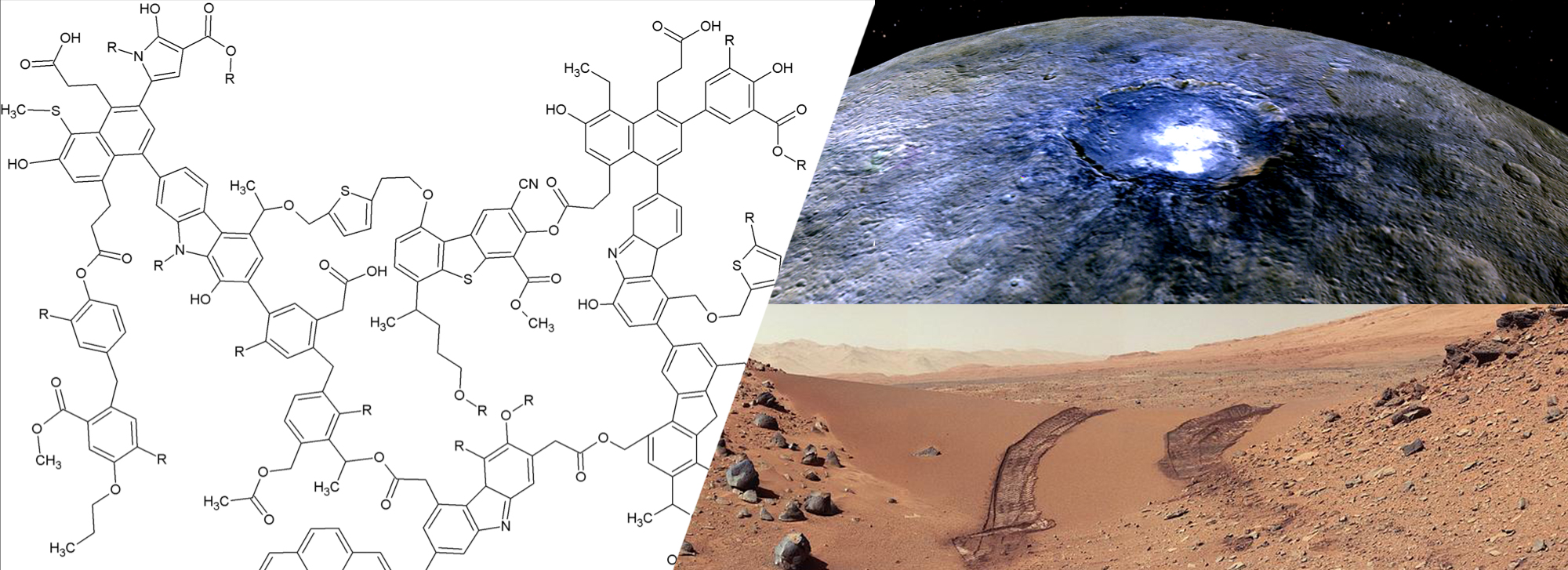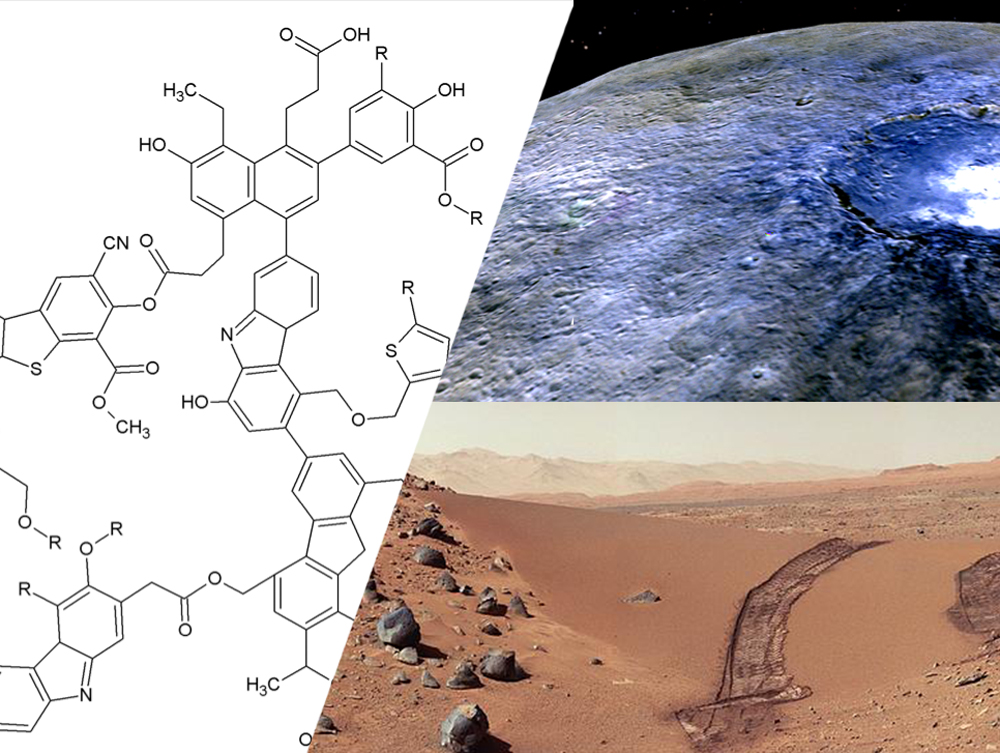Workshop Overview:
The study of the organic inventory of planetary materials occurs at an intersection of many fields including chemistry, biology, geology, and planetary science. The study will offer a state-of-the-art update of the field, sparking discussions and debates on some of the most pressing unanswered questions surrounding the generation, alteration, and preservation of organic compounds. This workshop aims to promote and inspire future scientific research proposals among participants, and inform the science objectives of sample return and in situ missions outlined in the Decadal report. [e.g., the comet & Ceres sample return and centaur lander missions].
For the first workshop, we will focus on the origin and evolution of organics in the outer solar system through the following areas:
- Known organic inventory in meteorites and on Earth environments, including biotic processes. Location and forms of organic matter on different planetary bodies. Key questions will include:
- What types (chemistry, isotopes, speciation) and in what abundance are organics expected in these environments?
- How are the organics cycled within the biosphere and interior, and influenced by chemistry and biology?
- Are organics created or destroyed via impacts or irradiation?
- Current state of knowledge about abiotic / prebiotic reaction sequences could occur on and in planetary bodies. Key questions will include:
- What are the known limits to these prebiotic reactions based on the environment?
- What conditions are under-explored experimentally and require modeling?
- Effects of mineralogy (e.g., Fe and other elements with variable oxidation states), including chloride and carbonate salts, temperature, pressure, and Water:Rock ratios on the formation of new organics, and their subsequent evolution. Key questions will include:
- How well-characterized is organic matter in these complex, variable environments and where are they inadequately studied?
- The relation between carbon-bearing gases such as CO2 and CH4, and organic matter. Key questions will include:
- Which came first - soluble insoluble organic matter, and how are they related to the CO2 and CH4 gases in the system?
- What does supercritical CO2 and water do to the pathways for organic evolution?
- Instrumentation developments. Key questions will include:
- What remote sensing and in situ instrumentation developments are required to better address the knowledge gaps and scientific questions (1-4)?
- What kind of Earth-based analytical facilities would we want or be developed on a decade or 2-decade timescale to study extraterrestrial samples in storage?






















